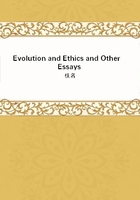
第56章
The second condition is really quite as plainly indispensable as the first, if one thinks seriously about the matter. It is social stability. Society is stable, when the wants of its members obtain as much satisfaction as, life being what it is, common sense and experience show may be reasonably expected. Mankind, in general, care very little for forms of government or ideal considerations of any sort; and nothing really stirs the great multitude to break with custom and incur the manifest perils of revolt except the belief that misery in this world, or damnation in the next, or both, are threatened by the continuance of the state of things in which they have been brought up. But when they do attain that conviction, society becomes as unstable as a package of dynamite, and a very small matter will produce the explosion which sends it back to the chaos of savagery.
It needs no argument to prove that when the price of labour sinks below a certain point, the worker infallibly falls into that condition which the French emphatically call la misere--a word for which I do not think there is any exact English equivalent. It is a condition in which the food, warmth, and clothing which are necessary for the mere maintenance of the functions of the body in their normal state cannot be obtained; in which men, women, and children are forced to crowd into dens wherein decency is abolished and the most ordinary conditions of healthful existence are impossible of attainment; in which the pleasures within reach are reduced to bestiality and drunkenness; in which the pains accumulate at compound interest, in the shape of starvation, disease, stunted development, and moral degradation; in which the prospect of even steady and honest industry is a life of unsuccessful battling with hunger, rounded by a pauper's grave.
That a certain proportion of the members of every great aggregation of mankind should constantly tend to establish and populate such a Slough of Despond as this is inevitable, so long as some people are by nature idle and vicious, while others are disabled by sickness or accident, or thrown upon the world by the death of their bread-winners. So long as that proportion is restricted within tolerable limits, it can be dealt with; and, so far as it arises only from such causes, its existence may and must be patiently borne. But, when the organization of society, instead of mitigating this tendency, tends to continue and intensify it; when a given social order plainly makes for evil and not for good, men naturally enough begin to think it high time to try a fresh experiment. The animal man, finding that the ethical man has landed him in such a slough, resumes his ancient sovereignty, and preaches anarchy; which is, substantially, a proposal to reduce the social cosmos to chaos, and begin the brute struggle for existence once again.
Any one who is acquainted with the state of the population of all great industrial centres, whether in this or other countries, is aware that, amidst a large and increasing body of that population, la misere reigns supreme. I have no pretensions to the character of a philanthropist, and I have a special horror of all sorts of sentimental rhetoric; I am merely trying to deal with facts, to some extent within my own knowledge, and further evidenced by abundant testimony, as a naturalist; and I take it to be a mere plain truth that, throughout industrial Europe, there is not a single large manufacturing city which is free from a vast mass of people whose condition is exactly that described; and from a still greater mass who, living just on the edge of the social swamp, are liable to be precipitated into it by any lack of demand for their produce. And, with every addition to the population, the multitude already sunk in the pit and the number of the host sliding towards it continually increase.
Argumentation can hardly be needful to make it clear that no society in which the elements of decomposition are thus swiftly and surely accumulating can hope to win in the race of industries.
Intelligence, knowledge, and skill are undoubtedly conditions of success; but of what avail are they likely to be unless they are backed up by honesty, energy, goodwill, and all the physical and moral faculties that go to the making of manhood, and unless they are stimulated by hope of such reward as men may fairly look to? And what dweller in the slough of want, dwarfed in body and soul, demoralized, hopeless, can reasonably be expected to possess these qualities?
Any full and permanent development of the productive powers of an industrial population, then, must be compatible with and, indeed, based upon a social organization which will secure a fair amount of physical and moral welfare to that population; which will make for good and not for evil. Natural science and religious enthusiasm rarely go hand in hand, but on this matter their concord is complete; and the least sympathetic of naturalists can but admire the insight and the devotion of such social reformers as the late Lord Shaftesbury, whose recently published "Life and Letters" gives a vivid picture of the condition of the working classes fifty years ago, and of the pit which our industry, ignoring these plain truths, was then digging under its own feet.